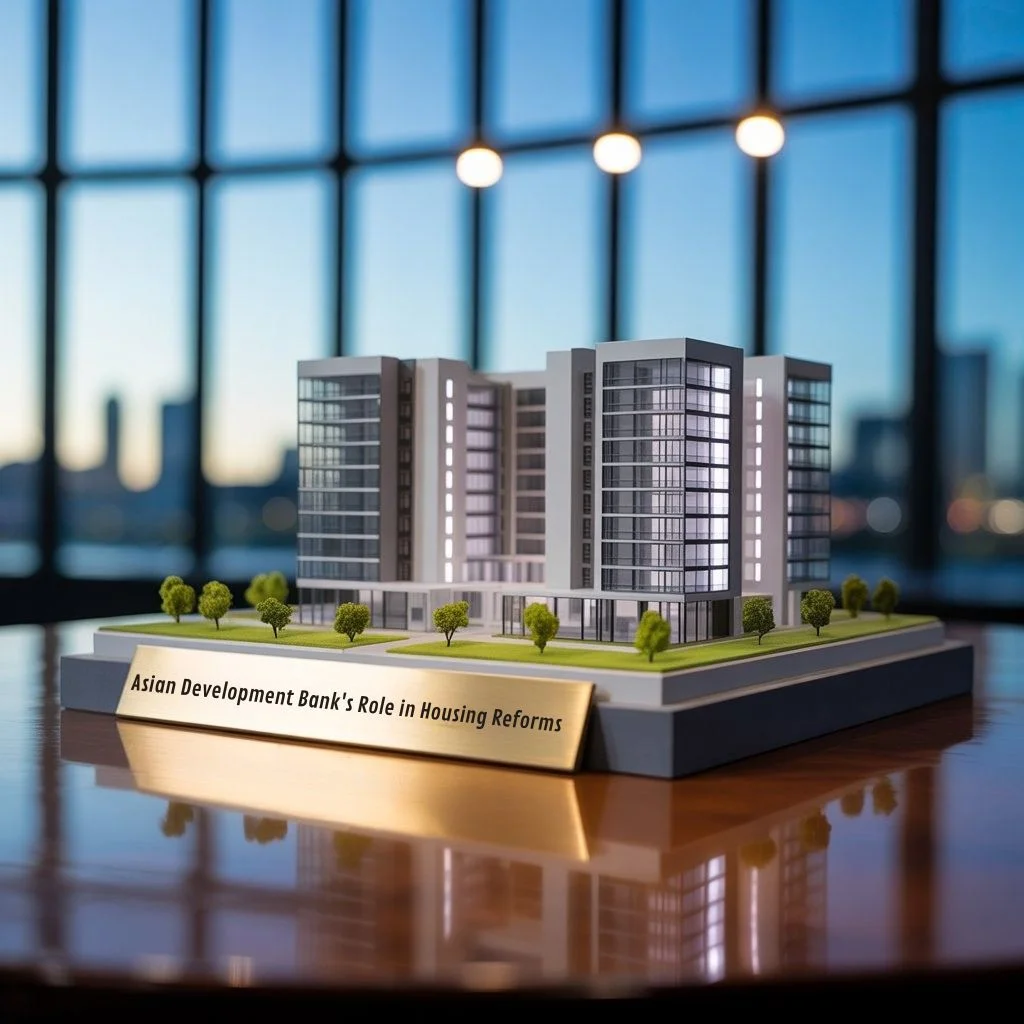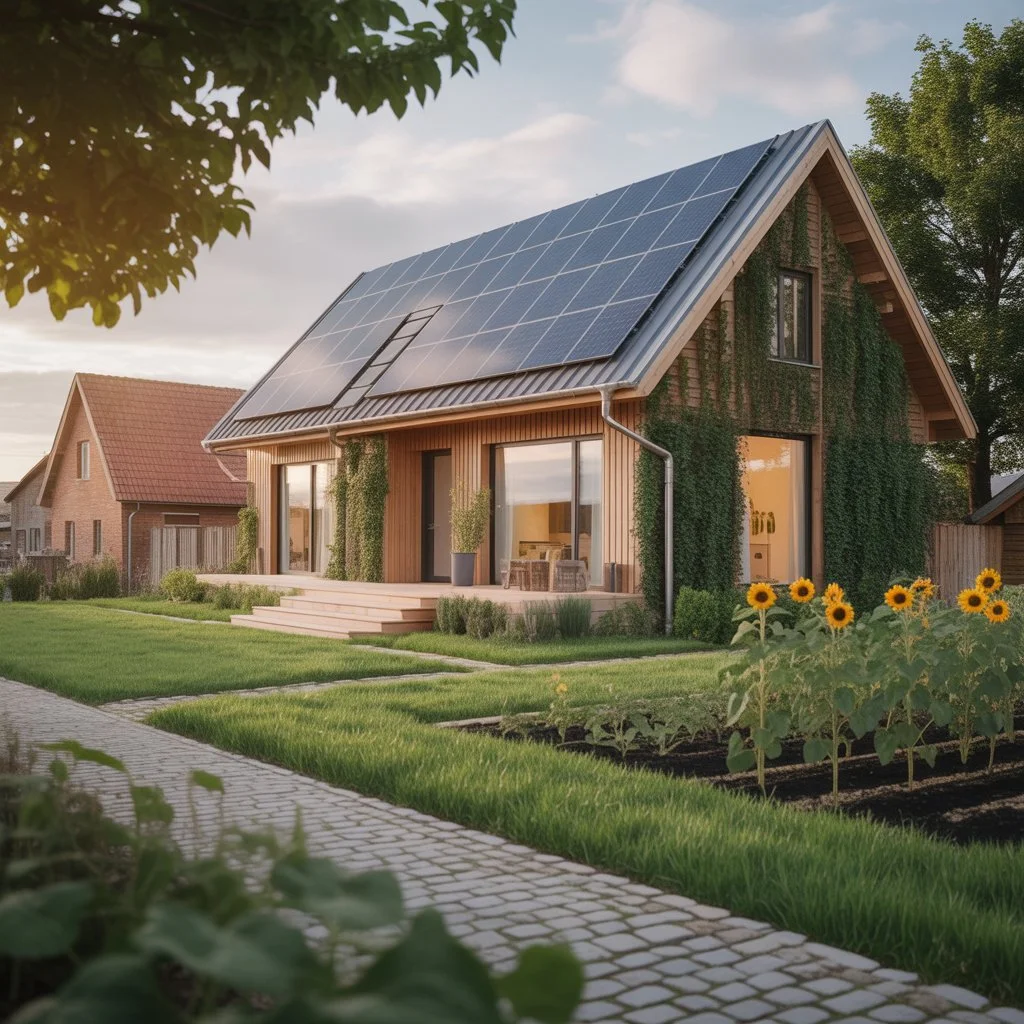The housing sector in Pakistan has long faced issues of unplanned urbanization, weak data systems, encroachment, and lack of access to affordable housing. In recent months, the Government of Pakistan and the Asian Development Bank (ADB) have come together to explore new ways to overcome these challenges. Their partnership, known as the Pakistan ADB partnership Land Data Bank sustainable housing initiative, is focused on creating a modern land data bank and introducing sustainable housing reforms that will shape the future of the country’s real estate and urban planning.
Pakistan Housing Needs and ADB’s Role
The demand for Pakistan housing has been growing rapidly due to population increase and urban migration. Yet, many citizens still struggle to access proper homes. Here, ADB Pakistan plays an important role by providing financial expertise, policy support, and technical assistance. With its global experience, the institution is now guiding the country to modernize land management and housing strategies.
Why a Land Data Bank Matters
A land data bank is a centralized system that uses modern technology like GIS mapping to maintain records of land assets. For Pakistan, this will help identify government-owned lands, assess their market potential, and make them more productive. It will also ensure housing reforms are backed by accurate data. By building trust through transparency, investors will feel more confident in contributing to sustainable housing projects across the nation.
Affordable Housing Through Policy Innovation
One of the biggest goals of the partnership is to create affordable housing Pakistan solutions. ADB has proposed innovative mortgage structures, housing finance schemes, and subsidies that can help middle- and low-income groups. Such approaches will not only boost the housing sector but also support financial inclusion in the long run.
Urban Development Reforms and Encroachment Control
The government is also emphasizing urban development reforms to manage rapid city expansion. A well-organized housing policy will improve zoning laws, infrastructure, and public amenities. Moreover, a comprehensive land data system will help prevent encroachment control in Pakistan, ensuring that valuable land resources are used effectively for public benefit.
Housing Finance and Subsidies
In line with the new reforms, the state is exploring different models of housing finance and subsidies to make home ownership easier. With ADB’s backing, these financial structures will provide reliable access to loans for people who previously could not qualify. This creates a balance between economic growth and social equity.
Building Climate-Resilient Housing
Pakistan faces severe climate risks such as floods and heatwaves. The collaboration highlights the importance of climate-resilient housing that can withstand such environmental challenges. Modern design standards, green technologies, and renewable energy sources will be integrated to reduce risks and ensure sustainability.
GIS-Based Land Management
A crucial part of the initiative is GIS-based land management, which allows for digital mapping of land assets. This will help track ownership, usage, and commercial potential in real time. For policymakers, developers, and investors, this transparency is a game-changer. It reduces disputes and ensures fair valuation of land across the country.
Role of Private Investment in Housing Sector
The government and ADB are encouraging private investment in housing sector projects. Through public-private partnerships, developers will get access to land data and reliable financing. This will help introduce new housing schemes and accelerate the construction of smart and sustainable communities.
The Draft National Housing Policy 2025
Recently, Pakistan introduced the National Housing Policy 2025 Pakistan updates, which aligns with ADB’s vision of affordable and environmentally friendly housing. This policy outlines steps for improving land utilization, financial access, and technological integration. It sets a roadmap for both urban regeneration and rural housing improvements.
Impact on Real Estate Market
The launch of a land database and sustainable projects will have a strong impact of land data bank on Pakistan real estate sector. Investors will be more willing to engage in housing schemes once data is accessible and reliable. At the same time, the public will benefit from transparency and fair housing opportunities.
Asian Development Bank’s Role in Housing Reforms

The Asian Development Bank role in Pakistan housing sector goes beyond funding. It is also acting as a guarantor for private-sector partnerships. By ensuring accountability and global best practices, ADB is helping Pakistan create a modern and inclusive housing system.
Government Housing Schemes in Pakistan 2025
These reforms will directly strengthen existing government housing projects Pakistan, ensuring they are more transparent, accessible, and sustainable. With reliable land data, the success of new housing initiatives will increase, giving people a better chance to own homes at reasonable costs.
Real Estate Policies and Low-Cost Models
The government is also revising real estate policies in Pakistan to encourage low-cost housing. By integrating global models and local needs, the country aims to deliver low-cost housing projects Pakistan that are both affordable and durable.
Smart Housing and Provincial Initiatives

New efforts also connect with smart housing projects in Punjab and other provinces, where technology-driven communities are being developed. These projects highlight how land data and sustainable models can bring long-term transformation.
Real Estate Investment and Local Market Impact
The partnership will further boost investment in Pakistan real estate market, especially in cities like Faisalabad, Lahore, and Karachi. With more transparency and accessible data, both foreign and local investors will consider new housing schemes safer and more profitable.
Housing Schemes in Pakistan and Local Opportunities
The reforms will influence housing schemes in Pakistan 2025, especially in fast-growing regions. For cities such as Faisalabad, this means modern communities, better facilities, and stronger confidence among buyers.
ADB-Funded Projects in Pakistan
Finally, the ongoing reforms are linked to several ADB funded projects in Pakistan. These projects not only improve infrastructure but also create frameworks for housing policies that ensure long-term social and economic development.
Conclusion
The partnership between Pakistan and the Asian Development Bank represents a new chapter in the country’s housing journey. By establishing a reliable land data bank, introducing affordable housing models, and promoting climate-resilient construction, both partners are building a framework for sustainable development. With supportive policies, advanced technology, and inclusive financial systems, the dream of home ownership for millions of Pakistanis can become a reality.
This collaboration has the potential to transform not only the housing landscape but also the Pakistan real estate sector, making it more transparent, innovative, and sustainable for generations to come.
Want to know more? Check out High Interest Rates in Pakistan & Real Estate: What Homebuyers Should Know
Like, share and comment: Facebook, Instagram, Youtube and TikTok.





Join The Discussion